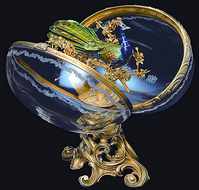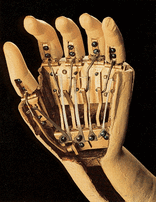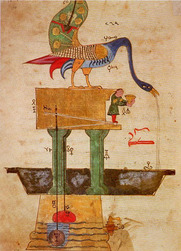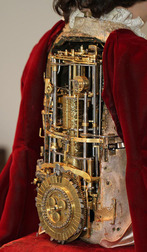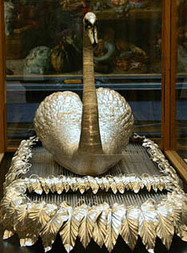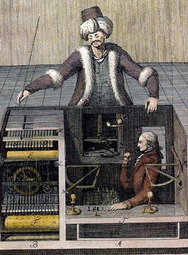What is Automata?Automata is the plural of automaton.
From Merriam Webster's dictionary: "a mechanism that is relatively self-operating" Latin, from Greek, neuter of automatos. First known use: 1645 A "Mechanical object, either functional (such as a clock) or decorative (such as a miniature singing bird), that is self-operating. Devices set in motion by water, falling weights, and steam were in use in the 1st century. Decorative mechanical objects were made for ecclesiastical use and table ornaments in the Middle Ages and Renaissance. Spectacular fountains and waterworks can be seen in 16th-century Italian gardens; elaborate mechanical devices (such as the chess-playing Turk) were popular in the 18th–19th century. Except for some works by Carl Fabergé, the production of expensive automatons virtually ceased by the 20th century." Throughout history, automata have been prized as a source of entertainment, beauty and wonder. See Wikipedia's Automaton Page HERE. See Dug North's historical and contemporary automata blog HERE. |

